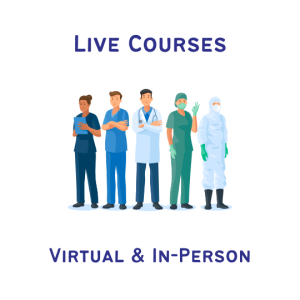
Published August 23, 2023 | Updated June 11, 2024
By Rebecca Richardson
Rebecca is a Junior Doctor working in the Midlands. Having completed her Foundation Years, she is now working as a Clinical Teaching Fellow, where she is able to pursue her love of Medical Education and enjoy some time out of the training pathway. When she’s not at work, Rebecca loves hiking, baking and playing with her new kittens!
Taking some time out of training after finishing the Foundation years is becoming an increasingly popular option for Junior Doctors.
In fact, it is so popular, that those who choose to progress straight into specialty training are now in the minority.
The Royal College of Physicians has deemed this the ‘F3 Phenomenon’ and estimates that 65% of Junior Doctors took an F3 year in 2019, with this figure continuing to rise.
There are numerous reasons why you may want to take time out of training. Many doctors use it as an opportunity to travel or even work abroad. It can also be a good time to earn some extra money through well-paid locum shifts, side hustles, or perhaps to save up for your first house or a new car.
For many, it is just a welcome opportunity to enjoy some free time again and rediscover the much-loved hobbies that had to take a backseat whilst you worked countless long days and night shifts.
Often it is the freedom from a regular rota, with the autonomy to decide when and where you are going to work through locum shifts, that appeals to those considering an F3 year. However, this does not suit everybody. For those who would prefer to keep some sort of routine and a regular income, there are plenty of options for you as well.
An alternative to locuming is to be employed on a fixed-term contract at a Trust, working as an SHO-level doctor, but without the training or portfolio requirements. You will hear these posts referred to by a variety of names, including ‘Trust grade doctor’, ‘Locally employed doctor (LED)’, and ‘Clinical fellow (CF)’. Essentially these all mean the same thing.
How you spend your F3 really is hugely dependent on the type of person you are, what stage of life you are at, and what you want to get out of it.
I personally fell into the category of wanting to keep some sort of routine, but also have time to explore my interests outside of clinical medicine. In particular, I wanted the chance to get involved and develop my skills in medical education; cue the ‘Teaching Fellow’ Job!
What is a Teaching Fellow?
Teaching Fellows are doctors who spend a proportion of their time teaching. This can vary from 1 day a week to 100% of contracted hours being dedicated to teaching.
Often there is an opportunity to continue some clinical work alongside teaching commitments, but how much and in what specialty will depend entirely upon the individual job.
It is possible to work as a teaching fellow at any stage in your career, but most often doctors will take time out between training blocks to do this (e.g. after completion of foundation years or core training).
There are a variety of possibilities when it comes to who and what you will be teaching, with jobs available in pretty much all specialities and also in more general roles such as simulation teaching. Often posts are focussed on teaching medical students, but there will also be roles available that deliver teaching to postgraduate doctors and other allied health professionals.
As you can see, no two Teaching Fellow jobs will look the same! This is great, as it allows you to pick and choose what, who, and how much you want to teach.
Why do a Teaching Fellow Year?
As a caveat, I am just about to start my Teaching Fellow job, so cannot claim to have experienced the benefits first-hand. However, there are numerous reasons that prompted me to apply for the job and further positives to the work that have been shared with me by colleagues already in the role.
Develop a valuable skill.
Being able to teach is important in many walks of life, but particularly as a doctor. We will all have been involved in teaching in some shape or form in our lives, even if it was simply explaining something to a peer or junior colleague mid-ward-round.
A teaching fellow year allows you to gain more formal experience and develop your teaching skills to the next level.
Get an additional qualification.
Carrying on from the above point, many teaching fellow jobs partially or fully fund a postgraduate qualification in medical education, such as a PGCert in MedEd.
Not only does this score you more letters after your name, but also gets you extra points on specialty applications.
Enjoy a change of pace.
Having some time away from the ward can provide a welcome break from the chaos of a clinical environment, giving you a chance to destress and maybe even have a proper lunch break for a change!
Find an escape from on-calls.
Now this completely depends on the specific job you choose. Some teaching fellow jobs have no accompanying out-of-hours work. Others (especially those combined with clinical roles) may require some on-call shifts.
Either way, it is usually a much-reduced out-of-hours burden than you’d have in a full-time training post.
Boost your portfolio.
Regardless of whether you complete a postgraduate qualification as part of your teaching fellow job, it still looks great on a CV or portfolio!
You will likely have to opportunity to design and deliver a prolonged teaching programme throughout the year, which can score you maximum points on many speciality applications, and there are a whole host of skills (think communication, teamwork, leadership) that you can talk about at interviews. You might even be able to turn it into a Quality Improvement Project.
Do something you enjoy!
At the end of the day, I wanted the job because I just really enjoy teaching!
Thinking of new and interesting ways to help others learn is a fun challenge, and seeing how this can help others develop and succeed is extremely rewarding.

How to Apply for a Teaching Fellow Job.
So, you’ve decided to apply for a Teaching Fellow job. What now?
Most jobs are advertised on the NHS Jobs website. They usually begin to pop up in January onwards, for the coming August rotation start date (although a few do appear before Christmas).
Once you have found a job (or jobs) that you would like to apply for (see below for my top tips on this), you will be asked to fill out an application form.
Currently, the majority of NHS jobs use the ‘TRAC’ system for applications. This comprises several different application sections, including basic information, previous employment history, as well as skills and experience.
The good news about this system is that once you have completed an application for one job, you can pre-populate future applications with the same answers where appropriate.
Top Tips When Looking for Jobs
Set alerts on the NHS Jobs website
You are able to set up alerts that email you every time a new job with your specified search criteria is added to the NHS Jobs website (e.g. ‘Teaching Fellow’ in London). This way you are sure not to miss any opportunities.
*Having said this, I would still check the website itself every few days as sometimes search criteria don’t catch everything that could be suitable.*
Read the job description CAREFULLY
As I have already explained, there is huge variation in the type of teaching fellow job available.
It is therefore vital that you read all of the information carefully to ensure that you are clear about exactly what this job entails (e.g. proportion of time teaching compared to clinical work, whether there is funding for a postgraduate qualification, out-of-hours commitments).
Be clear in your own mind what you are looking for
I personally knew that I wanted to keep at least 40% of my time working in a clinical environment, with the rest of my time spent teaching. It was also important for me to have some support in completing a postgraduate qualification.
Knowing what is important for you before you start looking will really help you pick out the jobs that you should spend your time applying for.
All about the Written Application
As mentioned above, the written application will cover a variety of sections. This includes basic factual information, such as your previous employment and personal demographics, as well as questions relating to personal skills, experience and achievements.
There is also usually a personal statement type section, where you are asked to explain in up to 2000 words why you are applying for the job, and what makes you the best candidate.
Key questions that repeatedly arise:
Other areas that are often asked about:
Do not worry if you don’t have something in absolutely every section (I did not have anything in my research section, although did explain that I would be keen to get involved in this if I had the opportunity to do so in the job I was applying for). It goes without saying, but just be honest, and highlight what you have learned from the things that you have done.
Remember to have at least 3 people who are happy to be contacted as references should you be successful in getting the job (ideally one from each of the past 3 years).
It is a good idea to contact these people before applying to make sure that they are happy with being listed, and also to check you have up-to-date contact details for them.
How to Prepare for the Interview
Congratulations! Your application has been shortlisted!
But now you have been asked to attend an interview and the panic sets in…
If you are anything like me, it may have been 7 or 8 years since your last interview way back when applying to medical school. It is therefore likely that you will be a little rusty and nervous about going through this process again.
However, with a little preparation and thought, you can give yourself a boost of confidence and the best chance of success.
As with all these things, everyone is different. Below is a summary of how I went about preparing for my interviews. Although it worked well for me (with 4 job offers from 5 interviews), others may use an alternative method with equal success.
The main thing here is to just make sure you do some sort of preparation!

Write a list of possible questions and draft answers for them.
A good starting place is to use the questions asked in the written application and put your answers in bullet point form.
I also found some general common interview questions on Google to add to my list. You can always use the trusty CT/ST Medical Interview book to help with some of the more medicine-specific career questions you may be asked, though this won’t help as much with teaching fellow interviews.
Finally, I got a friend to have a look and think of any other questions I may have missed.
Always think about WHAT YOU GAINED / LEARNED from your experiences, rather than just listing them.
It is all well and good listing 10 different teaching situations you have been in, but in my experience, it was much better to choose just one and then describe what I learned from it.
Doing this shows that you have gained knowledge and skills from the experience, which you could transfer to your new role. It also demonstrates your ability to reflect in order to develop these skills further.
Include some clinical scenarios.
You may not get asked anything clinical in the interview, especially if it is for a 100% teaching role.
However, even then you are still applying for a position where you have a responsibility to pass on sound clinical knowledge and skills, and as such, it is sensible for this to be assessed at the interview.
Don’t panic! It won’t be a whole OSCE or MRCP-style MCQ. However, it is possible (and indeed happened in most of my interviews) that you will be asked to talk through an A to E style examination of an acutely unwell patient, and then outline your initial management.
Just stick to the systematic approach, and always remember to ESCALATE TO A SENIOR if needed.
Think about an ethical scenario.
You may be the world’s best teacher, but what would you do if your student walked into the classroom and burst into tears?!
Your employers want to know that you can manage such situations in a caring, supportive, and safe way.
Hint: Ensure privacy, explore the problem, remain empathetic, offer solutions, signpost to help and escalate if needed.
PRACTISE, PRACTISE, PRACTISE!
Practise answering your list of questions out loud to yourself.
Practise stood in front of a mirror.
Practise with family, friends or colleagues asking you the questions.
There is no better way to prepare for something than to recreate the situation as closely as you can.
Important Note
Since COVID-19, many interviews are still being held virtually.
If this is the case for your interview, for goodness sake CHECK YOUR TECH! Make sure you have a working webcam and microphone.
Test run a video call to ensure you can’t see last week’s dirty washing in the background. And try and ensure you are somewhere with a stable internet connection on the day.
For both in-person and virtual interviews, make sure you arrive early. For face-to-face interviews, you will need to leave additional time for travel and traffic, so I would always aim to arrive at least 30 minutes before my slot.
For virtual interviews, you will usually be asked in the joining instructions to ensure you are ready and waiting at least 10 minutes prior to your allocated time.
Being late is stressful, so don’t do it!













